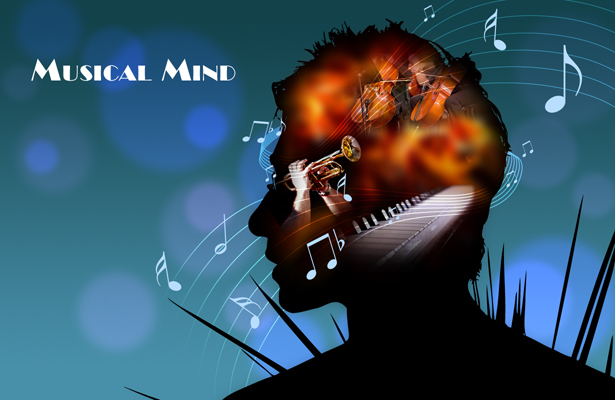How music can help your mind stay healthy
At String Visions we have featured lots of great stories connecting music and the mind. We have seen how developments in neurological science can improve our ability to practice and how the brains of string players differ from other musicians and non-musicians. And in our musicians’ health section we have found lots of great ways to keep our hands and minds strong.
But how does music directly benefit our health?
A report published last month in September explored this question, concluding that musicians are less impacted in their auditory abilities as they age than non-musicians. The study, conducted by researchers in Toronto, suggests that over a lifetime of studying and playing music we are left better able to detect and decipher sound than those who do not, especially as we age. [1]
This study supplements two other reports from earlier in the year. The first, released in the February Archives of Neurology, determined that older adults with hearing loss appear to be more likely to develop dementia. This study is part of a long-term project supported by the National Institute on Aging which funds Alzheimer’s Disease Centers all over the United States. In this recent publication, scientists reported that for every 10 decibels of hearing loss, the risk of developing Alzheimer’s Disease went up by 20 percent. [2]
The second study, led by Nina Kraus director of the Auditory Neuroscience Lab at Northwestern University’s School of Communication determined that music could also help fight against age-related memory decline. Klaus identified that musicians developed certain types of hearing skills from repeated exposure to complex soundscapes which enabled them to retain a comparatively higher level of cognition. [3]
If hearing loss increases the risk of Alzheimer’s, and musical training staves off hearing loss while also combating the debilitating effects of dementia, than aging musicians appear to have quite the hand up against their non-musical counterparts. But how exactly are musicians and non-musicians different in their hearing ability? The Canadian study examined four different auditory abilities:
- Threshold of hearing – the ability to hear sound as it becomes steadily quieter (the threshold indicates at which point the sound is no longer audible to an individual)
- Tuning and harmonics
- Clarity of speech within background noise
- Temporal gaps
In the first area, hearing threshold, the researchers found no significant differences between musicians and non-musicians. However, the other three factors are more directly connected to the auditory cortex (while threshold is a peripheral auditory measurement) and in those areas musicians had a clear advantage. For example, in the ability to understand speech in a noisy environment, the average 70-year old musician was roughly equivalent to a 50-year old non-musician. [4] [5]
The conclusion? A decline in auditory ability, while inevitable, can be delayed with music.
But as powerful as all of these findings are, there is still much about the musical mind that remains unknown to us. Derek Paravicini is a 32-years old blind, autistic, musical genius with perfect pitch.
Paravicini can play any music that he hears just once. He is to perform a concerto specifically written for him at Queen Elizabeth Hall in London. And yet, though we can see his incredible ability at work, his brain functions are a mystery.
The mystery is perhaps one of the most beautiful aspects of his art.
—————
[1] Zendel, Benjamin Rich and Claude Alain. “Musicians experience less age-related decline in central auditory processing. Psychology and Aging (September 2011).
[2] Lin, Frank R. et al. “Hearing Loss and Incident Dementia.” Archives of Neurology 68, no. 2 (2011): 214-220. Although this may be one of the first studies to more clearly demonstrate the preventive effects of music on dementia, past research explored connections between the two, especially regarding therapeutic uses of music. See Douglas, Simon, Ian James and Clive Ballard. “Non-pharmacological interventions in dementia.” Advances in Psychiatric Treatment 10 (2004): 171-177.
[3] Parbery-Clark, Alexandra et al. “Musical Experience and the Aging Auditory System: Implications for Cognitive Abilities and Hearing Speech in Noise.” PLoS ONE 6, no. 5 (2011): e18082 DOI.
[4] Zendel, Benjamin Rich and Claude Alain. “Musicians experience less age-related decline in central auditory processing. Psychology and Aging (September 2011).
[5] In this study a “musician” was defined as someone who started playing at age 16 or younger, received at least 6 years of formal musical training, and is still playing their instrument. Zendel and Alain analyzed the results of 74 musicians and 89 non-musicians of various ages in the range of 18-91.















Do you have an issue with bots spamming your blog with comments? Click http://tinyurl.com/6lrj2bq for the solution.